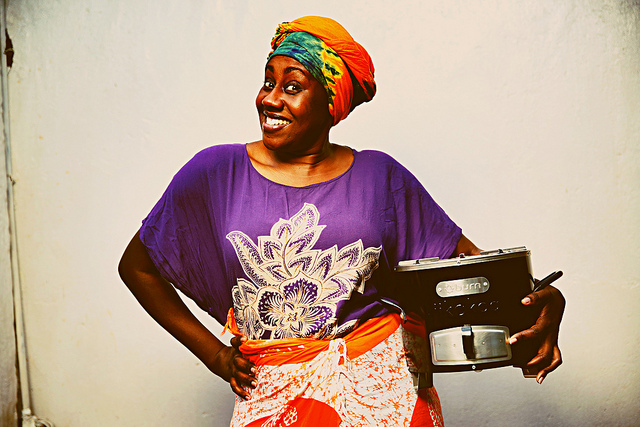In many countries, indoor cook stoves are the main source of energy for cooking and heating, creating indoor air pollution that kills millions each year. An innovative cook stove company is transforming the lives of Kenyans with its low-cost, high-quality, and energy-efficient design.
According to statistics from the World Health Organisation, approximately 3 billion people around the world cook and heat their homes using open fires and stoves that burn solid fuels – usually wood, charcoal, animal dung or crop waste. The use of inefficient, leaky and poorly-built stoves produces high levels of carbon monoxide and other harmful pollutants, and every year 4.3 million people globally die from exposure to household air pollution – more deaths than malaria, tuberculosis and HIV combined. People who spend most time near the hearth, usually women and children, are most at risk.
The environment is being hit hard too, with 52 percent of sub-Saharan Africa’s deforestation caused by the cutting down of trees for firewood and charcoal. Currently only just over six percent of Kenya has forest cover, and with every tree that is chopped down, the risk of land degradation and drought increases.
The company BURN Manufacturing has developed an innovative charcoal stove that consumes half as much fuel as a traditional ceramic model and reduces carbon emissions by 65 percent. As well as reducing air pollution and slowing down the destruction of forests, the stoves also help their owners themselves save money. Normal devices consume high levels of charcoal meaning families can spend as much as 500 US dollars a year on fuel – a huge amount of money for low-income households. A BURN “Jikokoa” stove burns half the amount of fuel that a normal ceramic model would – meaning savings of up to 250 USD per household – the name Jikokoa means “saving stove” in Swahili.
Indoor air pollution from solid fuels is now recognized as a major global health concern. Exposure to indoor air pollution depends critically on household access to, and choice of, energy technology (that is, the choice of fuel and stove). The greatest risk reductions can be achieved by a complete transition to electricity, or even to direct use of fossil fuels like natural gas and kerosene. Although the health risks of poisoning or burns from kerosene have not been systematically quantified, they are likely much smaller than the health risks from biomass and coal.
In many developing countries, especially in urban areas, high-income households have transitioned to cleaner fuels. There are, however, important exceptions to this: in China, for example, rapid economic growth and infrastructure expansion have contributed to near-universal access to electricity, yet almost 80 percent of households continue to use biomass or coal as their main energy source for cooking and heating.
The whole manufacturing process is carried out at the company’s factory in Nairobi, resulting in a 100 percent locally-made product, as well as the creation of hundreds of jobs. The company is particularly proud of its support of women too: over half of factory employees are female, and the company recently won the Energy for Women and Girls Ashden Award. And yet another plus point: their Kenya-based management and development team is mostly made up of local Kenyan workers too.
A recent deal with a new investor will allow the company to manufacture 3.7 million clean-burning cook stoves over the next 10 years. According to BURN’s CEO, in figures this means cutting down CO2 emissions by 21.3 million tonnes, reducing indoor air pollution among users by up to 90 percent, and saving 123 million trees – a huge move towards protecting and supporting the country’s health, economy and environment.
Check out the video below to meet the charismatic Cynthia Ofula, one of BURN Manufacturing’s Nairobi-based quality inspectors, and find out more about the project.







